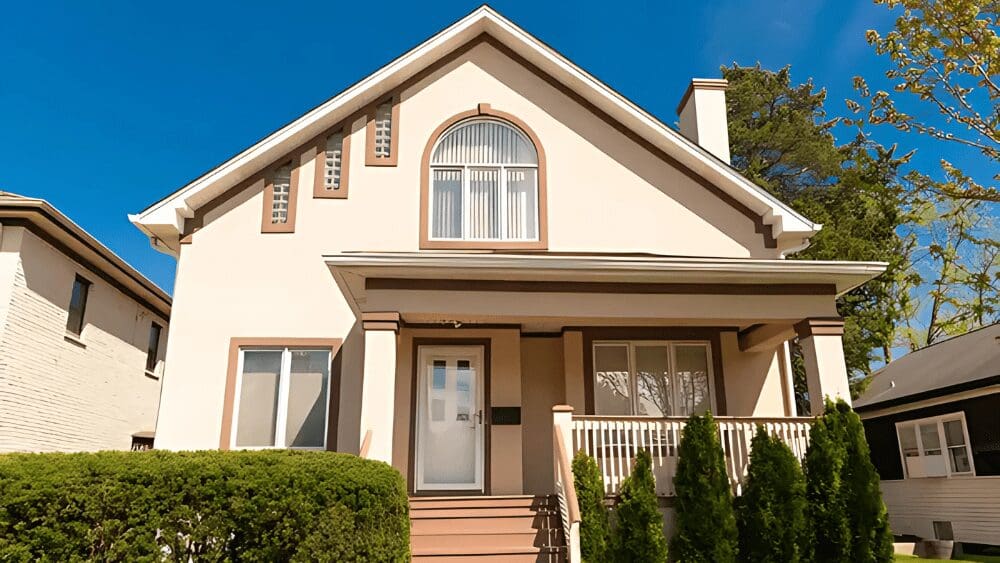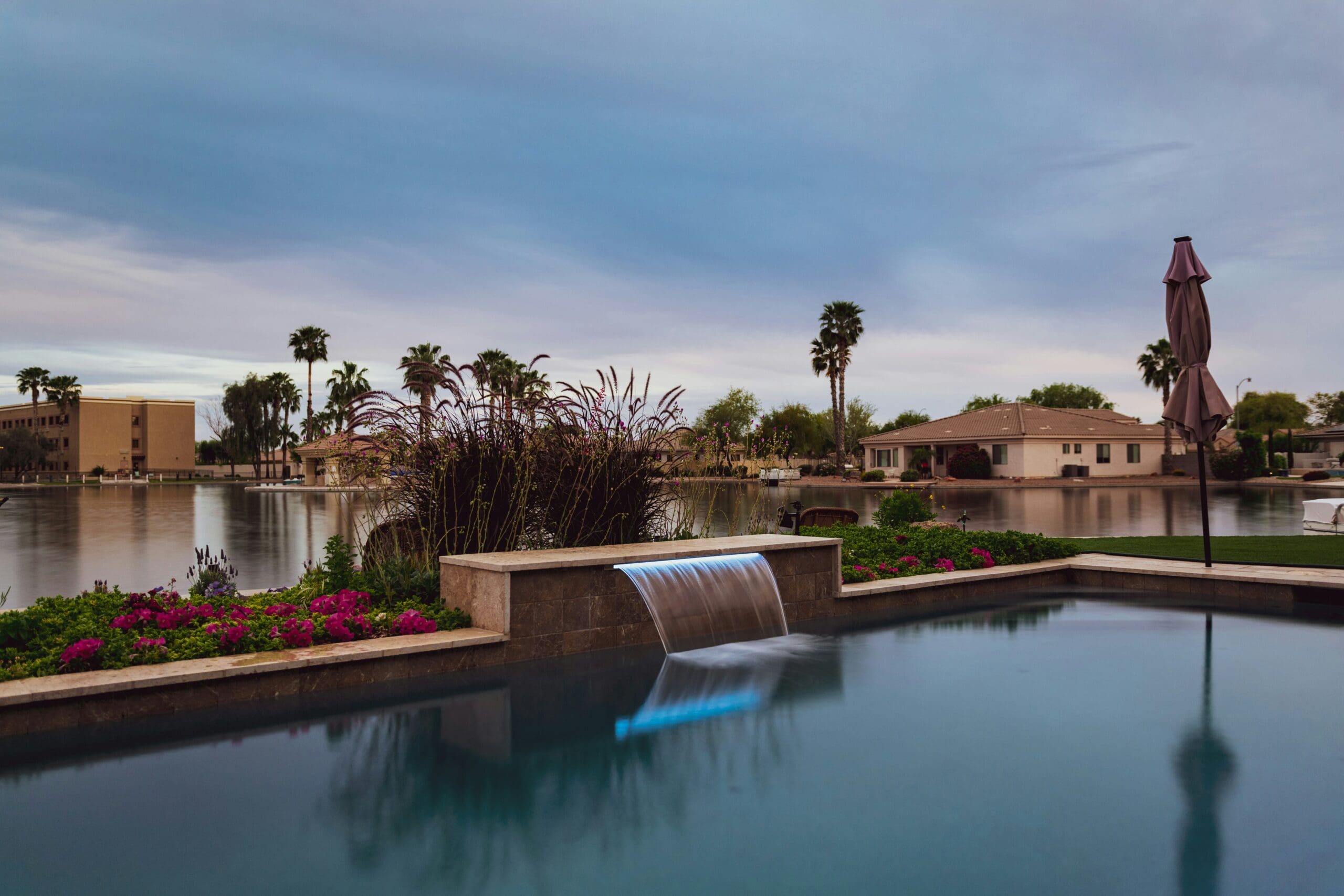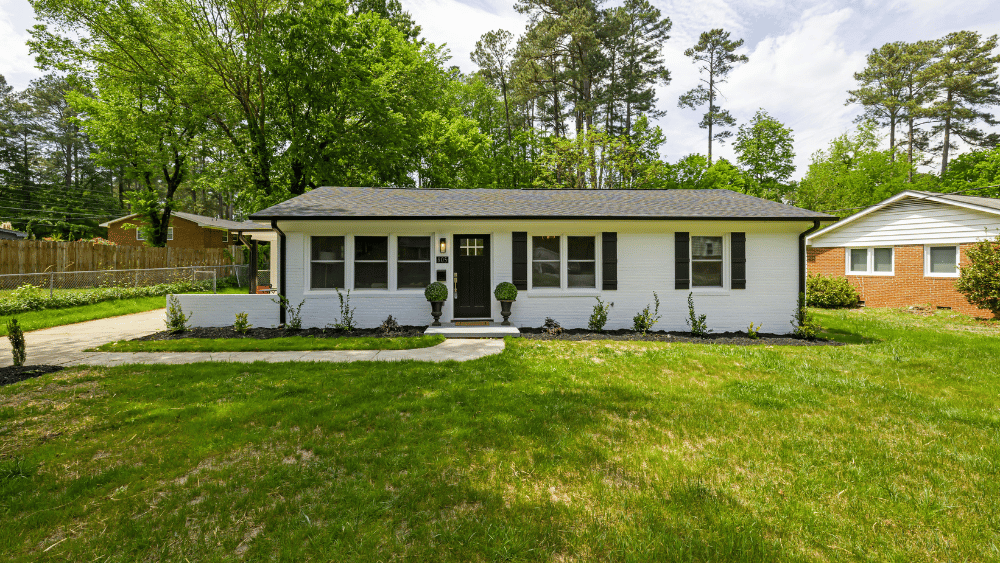Potential buyers of your house will view an in-ground swimming pool as either a relaxing oasis, social hub, and an excellent spot for exercises—or just another maintenance hassle. This is why selling a house with a pool is a tricky transaction.
“Lot of times with clients, they’re either pool people or they’re not pool people,” says Robert Ryczek, a real estate agent with 47 years of experience in Florida’s Fort Lauderdale and Gainesville areas.
“The people that I find have two or three children, and they want to invite all the classmates over, a pool is pretty high on their list. In some cases, you’ve got the grandparents who want to have all the pool parties.”
Can you change the mind of a pool hater? Nope, consider them a lost cause! Instead, you need to target your efforts for selling a house with a pool toward the party people — but even they’ll turn up their noses at an ugly cement pond.
So let’s go through exactly how to show this home amenity in its best, sparkling light to capture the attention of the perfect buyer.
Selling a Home with a Pool? Partner with a Top Agent
If you’re selling a home with a pool, consult with a top local real estate agent about the best way to proceed. Doing so could save you significant time and money. An experienced agent can also help you know what to fix, and what repairs you can skip.
Does a pool add value to your house?
Approximately 8% of American homes have a pool. Homeowners spend an average of $5,000 to $30,000 to remodel pools. It costs more when you add visually-appealing features, such as slides, waterfalls, and enclosures.
Having a pool is a bit like buying a new car. It comes with value which then depreciates due to necessary maintenance. There’s also the cost of the recommended liability insurance. Even so, some experts say a pool could boost your list price by as much as 7% depending on the age and condition of your pool and where you live.
Statista report shows the top cities with the highest percentages of backyard pools were:
- Cleveland, Ohio
- Pittsburgh, Pennsylvania
- Cincinnati, Ohio
- Atlanta, Georgia
- Tucson, Arizona
Depending on your price range, a pool can be an expected amenity. Ivory Cooks, a top-selling Miami agent, said that most of the homes that sold in the $1 to 2 million range in Miami Beach had pools.
According to Cooks, pools have gone from being just fun spots for kids to becoming a key feature for his clients. Homeowners love to entertain and want the perfect space for hosting events and gatherings. They want an outdoor area that feels like part of the home.
Even if you’re in a more modest price range of, say, about $350,000, “most of those homes are going to have a pool because it’s pretty standard once you get past a certain point,” Ryczek said.
“If it’s a newer pool, say, within the last 5, 6, 7 years, you’re able to get a little better value. But I’ve seen older homes, 25-30 year old homes, where … sales haven’t really been much more than $12,000 to $14,000 more than what the non-pool homes have sold for.”
5 tips for selling a house with a pool
Beyond the potential dollar value a pool adds to your home, there’s also the marketability factor to consider. Buyers are often driven by emotion and make decisions based on their vision for a certain type of lifestyle that they believe will come with their purchase of a house.
An expertly staged pool that helps buyers imagine a refreshing dip on a hot day or lounging around the deck with friends is powerful. These types of reveries by design have a big impact on how well your home shows, if you’re willing to put in the work to make them happen.
Tip #1: Put your pool maintenance on overdrive before showings begin
When you’re trying to sell a house with a pool, kick the maintenance up a notch. Maintaining a pool year-round costs about $960 to $1,800 annually, depending on the size and type of pool and the frequency of services.
Before you list your property, you’ll want to make sure that:
- The water chemistry is balanced
- The pool equipment is working properly
- The skimmer, basket, and filter are clean
- The bottom has been vacuumed
- The water is free of plant matter, bugs, and other debris
The cost of pool cleaning services ranges from $60 to $90 per hour. First-time cleaning typically takes 2 to 3 hours, costing around $120 to $270. Specialized services like a chlorine wash range from $300 to $450, while a full drain and clean can cost up to $650.
Common repairs that a pool needs are minor cracks in the pool’s cement, rips in a vinyl liner, or leaks around lights, pumps, and fittings. Expect to pay an average of $250 for pool repair. It’s important to resolve issues early on to prevent costly problems later.
If the pool’s interior plaster finish has a few spots or stains, “maybe we would try getting away with the pool home sold and not dealing with it. Other times, if it’s been not addressed for 4, 5, or 6 years, it’s in pretty bad shape,” Ryczek said.
“Like anything that you deal with selling property, you try to deal with the issues or potential issues upfront so there’s no surprises. Sometimes if it’s really bad, I’ve recommended people go ahead and have the pool itself redone.”
If you’ve had any pool equipment replaced or repaired, keep your receipts for the home inspection and as a possible selling point.
Some variable-speed pool pumps, for instance, have Energy Star certification and reportedly save as much as $1,500 in energy costs per year compared to traditional single-speed pumps. A Hayward TriStar VS 900 variable-speed pump sells for about $1,749.
A quick but effective way to spruce up the pool is to repair cracks on the pool deck, and perhaps paint or pressure wash it. Also, if the pool is enclosed by a screen — which reduces maintenance by keeping leaves out of the pool—clean up the screen as well. “Make sure it doesn’t have 10 years of leaves on top of it,” Ryczek said.
Tip #2: Allay buyer concerns about the pool’s dangers by installing safety measures
Already installed safety measures can reassure families with young children who might be concerned about having a pool. Many municipalities require some type of barrier that separates the pool area from the house and yard, such as a 4-foot fence that encloses the entire pool. (Yes, even if you have a fenced-in yard.)
The National Drowning Prevention Alliances says such an isolation fence reduces a child’s risk of drowning by 83%, compared to a pool with a three-sided property line.
The Consumer Product Safety Commission recommends self-closing and self-latching gates that open outward to prevent young children from accessing the pool. Automatic door locks and alarms also can prevent access and alert you if someone enters the pool area.
You’ll also want to share what you’ve spent on home insurance fees, as having a pool on your property increases your home’s liability.
A basic homeowners insurance policy typically will cover a pool structure, but some experts recommend bumping your coverage from $100,000 to $500,000, which can cost about $2,000 to $5,000 per year, depending on your location.
Tip #3: List the house during your market’s prime pool season
In a market like South Florida, which includes Tampa, Orlando, Fort Lauderdale, and Miami, there’s no right or wrong season to sell a house with a pool because the weather is predominantly warm, Ryczek said.
But if you live in an area with more seasonal weather, including even Gainesville, where the University of Florida drives a lot of the activity — you’ll want to get the word out ahead of when people are likely to use the pool.
“In the North Florida area, it seems like our very best time has typically been mid-January through June, and maybe the first week of July,” Ryczek said.
In the Midwest and Northeast, of course, the pool won’t show its best when it’s closed up and iced over, so listing your house in the late spring or summer months will give buyers the best impressions of your hot-weather home amenity.
Tip #4: Brag about all your pool’s extra bells and whistles
Let your real estate agent know what the pool’s bragging points are. A pool appeals to a certain aesthetic and fit lifestyle, so even if the water’s crystal clear, there are other important elements to consider, according to Cooks. His clients particularly like cascading waterfalls, elegant fountains, charming gazebos, modern cabanas, outdoor kitchens, secret gardens, showers, and dining areas.
Perhaps you have a solar heater, a built-in hot tub, a sound system, or a summer kitchen.
“Do you have an entertainment center around that pool? If people really are pool people, they like the package with all the bells and whistles,” Ryczek said.
Tip #5: Stage the deck like paradise with ‘poolscaping’
A potential buyer will look at more than just the pool itself. The landscaping and furniture are part of the environment.
Although a professional landscape designer may be helpful here, Kazdin Pools Spas of Southampton, N.Y., suggests surrounding your pool with strategically placed potted plants, a lush lawn, and trimmed bushes, trees, and hedges.
Put away the pool floats and other toys, which can make the pool area look disorganized. Stow the pool equipment where it belongs.
Chaise lounges, recliners, and accent tables help make the pool area inviting. Consider adding all-weather wicker patio furniture, which includes rust-resistant steel framing.
Wayfair’s Corrigan Studio Annajulia Outdoor Rope Woven Sectional Patio Furniture L-shaped Conversation Sofa Set, priced at $799.99, includes thick cushions, a detachable lounger, and a white side table. Wayfair also features a variety of outdoor club chairs, conversation sets, and other furniture, such as the Langley Outdoor Fabric Chaise Lounge, priced at $629.
Majestic Lawn Care and Landscape of New City, N.Y. reminds homeowners that the “poolscape” should be able to handle partial to full sun and humidity, as well as splashes of chlorine or salt and pool cleaning supplies.
Potted palms, banana trees, ferns and birds of paradise add texture and visual appeal. Black-eyed Susans, elephant ears, and daylilies provide splashes of color, and mulch adds a finishing earth touch.
Most of all, if you’ve enjoyed having a pool in your home, let that show. A pool that’s provided years of joy — and is obviously well-maintained — is sure to tempt buyers eager to make a splash.
Handling buyer objections related to swimming pools
When buyers are eyeing a home with a pool, there are some common objections they may have:
- Maintenance costs: Buyers may worry about upkeep, but you can highlight that regular maintenance services are available, often with reasonable fees, and a well-maintained pool is more cost-efficient.
- Safety concerns: For families, emphasize safety features like pool covers, alarms, and secure fencing, showing them that you’ve prioritized safety.
- Seasonal use: If in a cooler climate, mention pool heaters or how the pool can still serve as a relaxing space in warmer seasons.
- Additional insurance: Inform buyers that while insurance rates may go up slightly, it’s typically minimal, especially with proper safety features.
Addressing these proactively reassures buyers and shows you’ve thought of their concerns.
Dive into home sale success
Staging the pool, incorporating safety features, timing the sale strategically, and showcasing additional amenities are key to maximizing your home’s appeal.
At the same time, it’s important to partner with a real estate agent who knows how to market homes with pools effectively. They can highlight the pool’s features to attract the right buyers. They can help you navigate pricing and negotiations to ensure you get the best value for your property.
Connect with a top-performing real estate agent today.
Header Image Source: (Max Vakhtbovycn / Pexels)



















 English (US) ·
English (US) ·